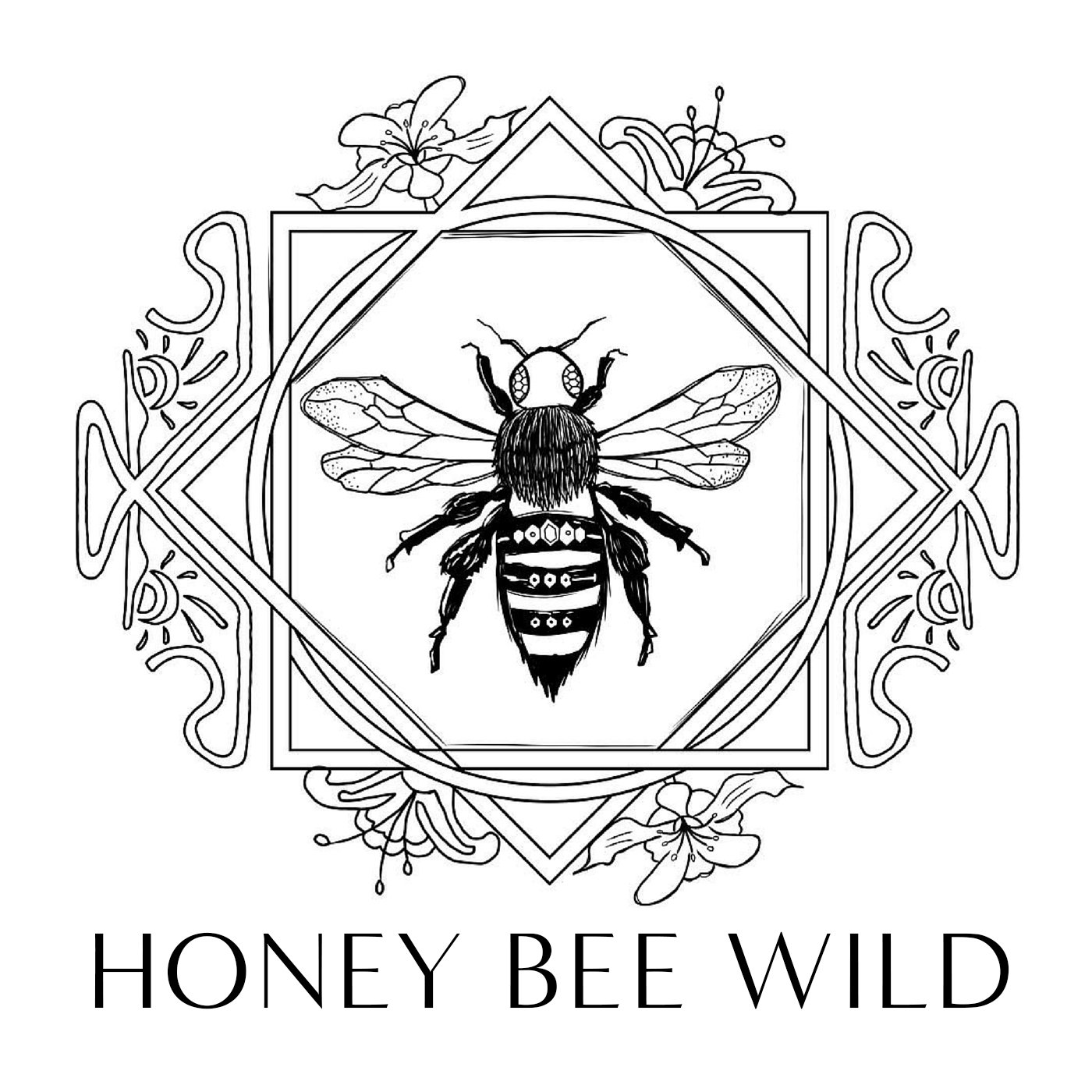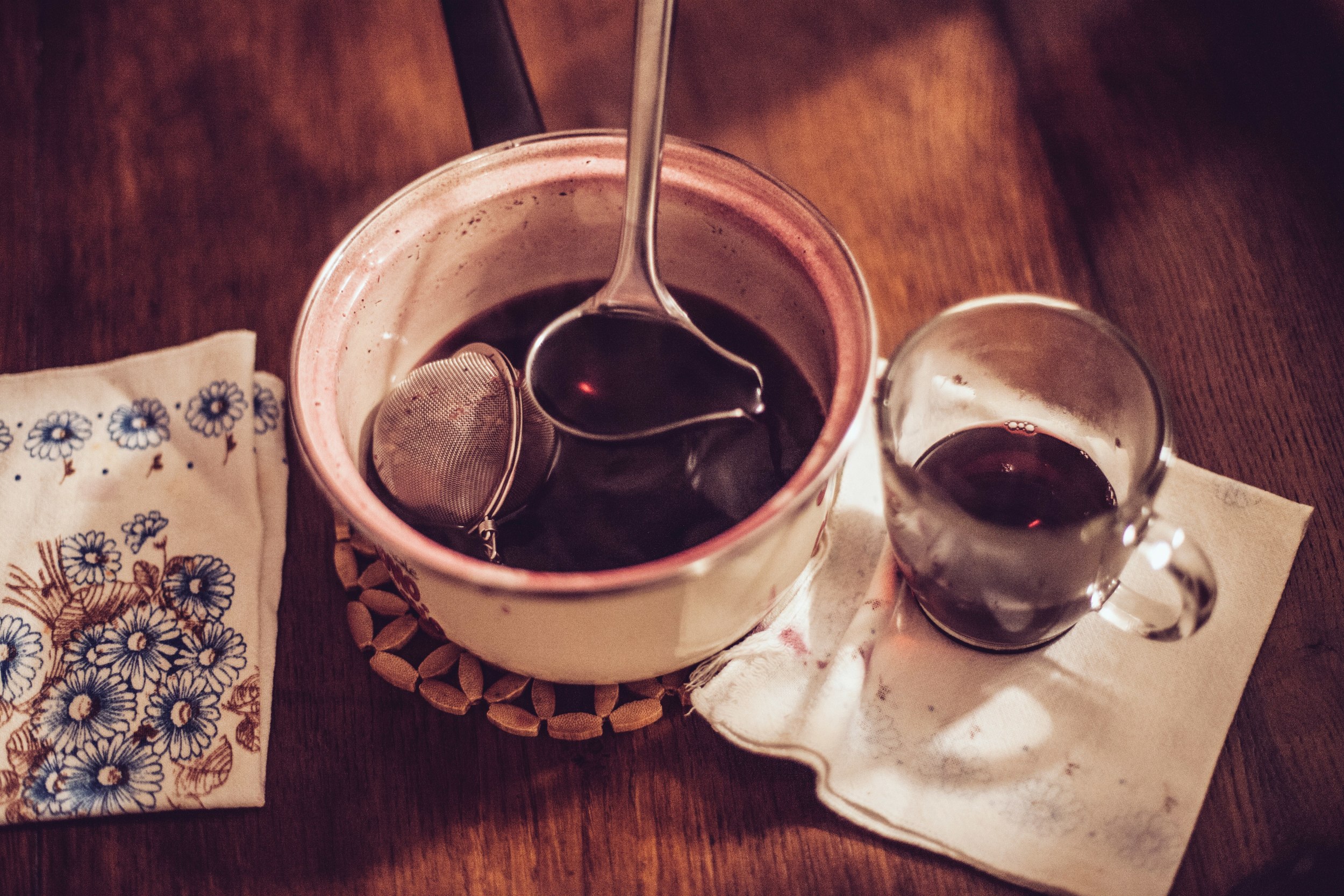A Walk Through an Herbalist's Garden
Melissa bends low and plucks a small herb growing out of the cobble stones in front of her house. She holds it up to the light and shows me the tiny perforated holes in the leaves.
“That’s how you can tell it’s the medicinal St. John’s Wort.”
Note: Melissa is a fictitious name to respect anonymity of person and place. The name 'Melissa' translates to 'honey bee'. No photos were taken on location.
Melissa bends low and plucks a small herb growing out of the cobble stones in front of her house. She holds it up to the light and shows me the tiny perforated holes in the leaves.
“That’s how you can tell it’s the medicinal St. John’s Wort.”
She presses the sample in between a card about the medicinal properties of St. John’s Wort and offers it to me.
Melissa is a licensed herbalist living in a serene tucked-away valley in Southwest England. Her practice and gardens sit on one side of a happily meandering river, and on the other, there are two hives of bees. We stand in the early morning sunlight, watching the bees from the opposite side of the river. I don’t have to ask to know we wont be going any closer. These bees are to be left undisturbed. They are part of the land, as much as the hazels and the stones. Melissa regards them with an appraised respect. She never goes into the hives, and clearly does not keep bees for the purpose of harvesting and selling honey. The bees are part of the land and the land is rich with the plants that heal. They are wild hives.
Melissa takes us past the historical stone building on the property and into her gardens. She is wearing sturdy trousers, wellies and a thick wool sweater with a leather tool belt strapped around her waist where she can store her clippers and garden shears. She is every inch the embodiment of wise, practical and earth-centered. When we contacted her to find out if we could meet, she expressed that to visit is really about visiting the land, and since she lives on the land, she is more an aspect of the land itself.
After the bees, Melissa takes us by her wild garden. Once again, she doesn’t explain much, other than it is wild. I am reminded of a saying I once heard. “Always leave a part of your garden wild for the fairies." In this case, I think the fairies are the spirit of the land itself, the devas of the trees and river, made manifest in freely growing flowers and medicinals. It is a sage practice in that it honors both yourself as steward of place, and the land in its wild, infinite wisdom.
We pass through a bower and along the circuitous “rows” of her cultivated herb garden. I see carpeted thyme, raspberry, lavender and hawthorne. There are apple trees endemic to the valley, so old I feel like bowing to them. She teaches us the best way to pick apples and we harvest a pile of “cookers” and a pile of “eaters” to take home.
“You know an apple is ready to pick if your twist it, ever-so-gently, and it comes away. Never pull it.”
Inside her workshop, the light is dim, creating an immediately hushed, cosy environment. Here we find the transformation of her labors with the land into herbal medicines. On the table illuminated by a shaft of filtered light, is a large round basket of drying nettles. Nearby sits another basket fill with some kind of root, and above, herbs drying in bunches. Along the walls are bags and bags of neatly arrange herbs, and in the corner, there is a hearth with a kettle. Only in my dreams have I ever seen such a place. It is at once ancient and modern. I feel awed by the complexity of knowledge Melissa clearly possesses, while at the same time, comforted by the simplicity of being with the plants.
When speaking to her, I feel as though I am speaking to the voice of the valley. There is a deep listening in her presence that found often among those who live close to the earth. A listening that is more difficult to cultivate in our urban, technology-driven lives, but still possible. To listen deeply is to see true.
As someone who is currently not rooted to any one place, and is ultimately seeking a home (even if it’s more than one home in more than one country!), I find myself thinking about what it means to be truly rooted to a piece of land. I am lucky to travel the world and fall in love with landscape, people, cities and communities everywhere. I root myself in the act of being as present as I possibly can wherever I am. I am by no means a master as such things; that’s why it’s called a practice. In doing so, there are certain landscapes, just like certain people, that our bodies resonate to. Place where we receive an internal yes that has very little to do with the mind, and everything to do with the land. Earth reaching up as the body reaches down. How must it feel to know one piece of land so intimately that each flower, each root, each passing of the seasons becomes an extension of the self? The self becomes a reflection of the land: moulded, tempered and transformed.
I leave you with this quote by John Seymour, author and pioneer in self-sufficiency and environmental awareness:
“The ‘owner’ of a piece of land has an enormous responsibility, whether the piece is large or small. The very word ‘owner’ is a misnomer when applied to land. The robin that hops about your garden, and the worms that he hunts, are, in their own terms, just as much ‘owners’ of the land they occupy as you are. ‘Trustee’ would be a better word. Anyone who comes into possession, in human terms, of a piece of land, should look upon himself or herself as the trustee of that piece of land - the ‘husbandman’ - responsible for increasing the sum of things living on that land, holding the land just as much for the benefit of the robin, the wren and the earthworm, even the bacteria in the soil, as for himself.”







